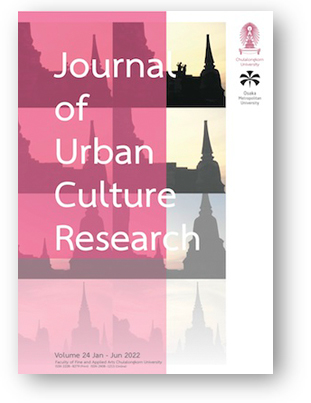Sustainable Heritage City: An Empirical Study to Address Study Limitations in Previous Studies
DOI:
https://doi.org/10.14456/jucr.2022.3Keywords:
Heritage City; Sustainable Development; Cultural; Sustainability Heritage City; 2030 AgendaAbstract
This article reviews the previously published studies on sustainable heritage cities, and to derive lessons for further research. The research method used is document analysis. A total of 30 journal articles from leading databases published in the five (5) years (2016–2020) were selected using the Preferred Reporting Items for Systematic Reviews and Meta-Analyses (PRISMA) method. The results of the analysis can be broken down into the purpose of the study, methodology, selection of indicators and study area used in previous studies. The purpose of the past studies was to lead towards the development of sustainable heritage cities by using five (5) key measurement indicators: (1) economic, (2) social, (3) environmental, (4) cultural heritage, and (5) institution. The study area is divided into three (3) types: (1) city (urban area), (2) historical site, and (3) heritage building. However, there are still some research gaps in this field, such as methodology, indicator and study areas that need to be filled by future research. The vacancies left in this study will be the focus of future researchers to make the study in this field more impactful and holistic. The implications of this study can help the development of sustainable heritage cities, in keeping with the 2030 Agenda (Agenda, 2030).
Downloads
Published
Versions
- 2022-07-01 (2)
- 2022-06-22 (1)
How to Cite
Issue
Section
License

This work is licensed under a Creative Commons Attribution-NonCommercial-NoDerivatives 4.0 International License.
Authors authorize the JUCR to publish their materials both in print and online while retaining their full individual copyright. The copyright of JUCR volumes is retained by Chulalongkorn University.
The views and opinions expressed herein are those of the individual author(s) and do not necessarily reflect the policies or opinions of the Journal (JUCR), it editors and staff, Chulalongkorn University, or Osaka Metropolitan University.







